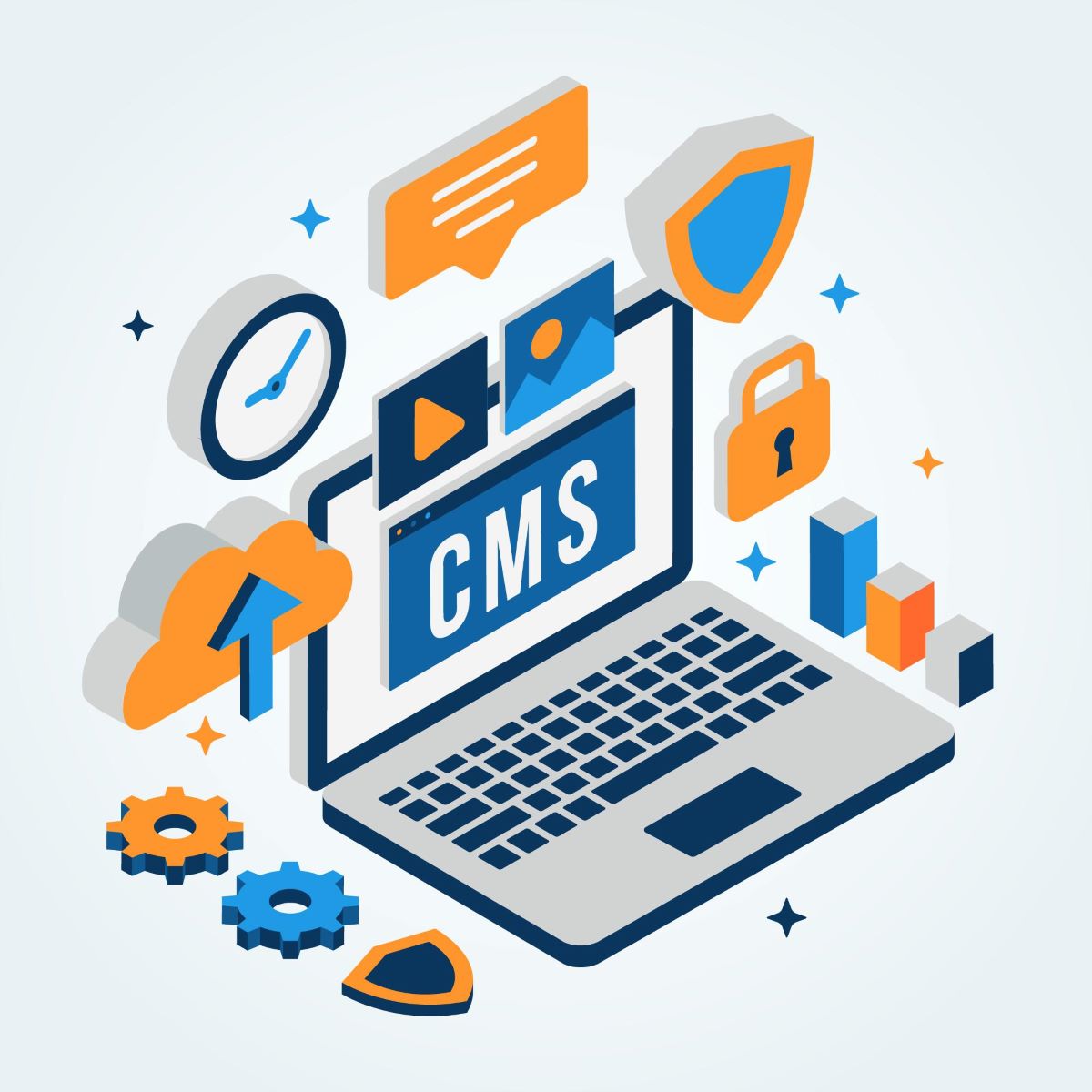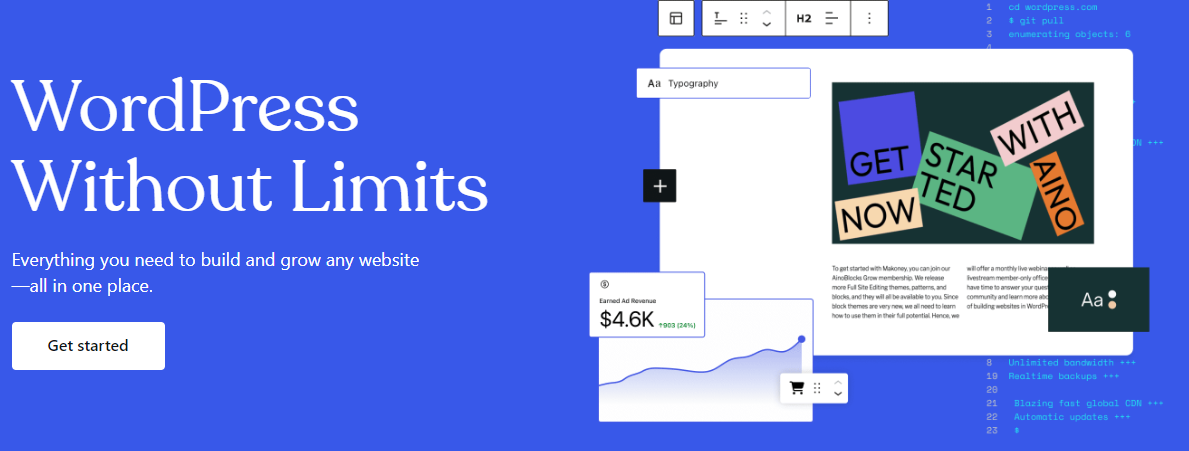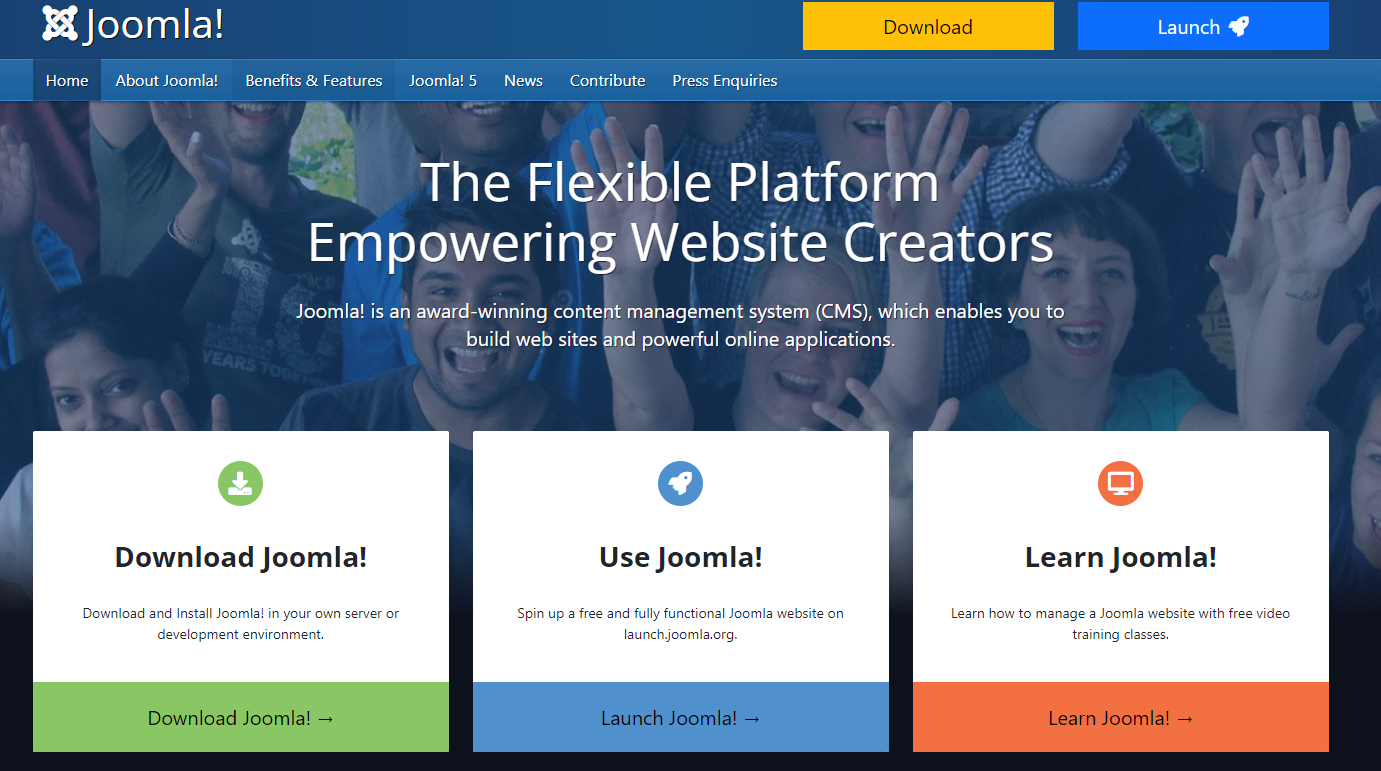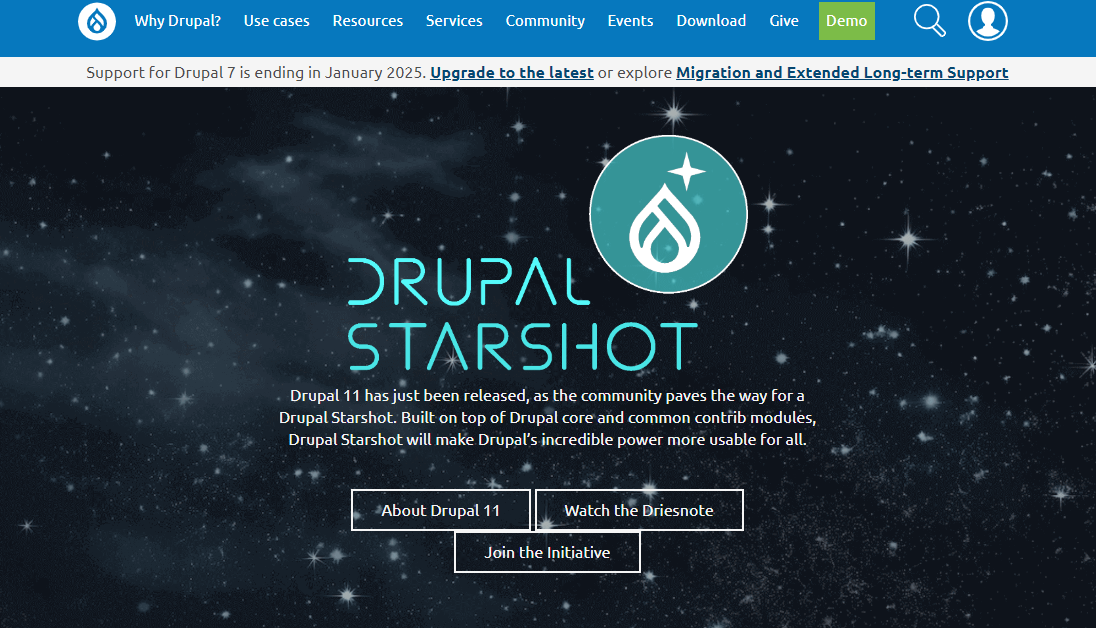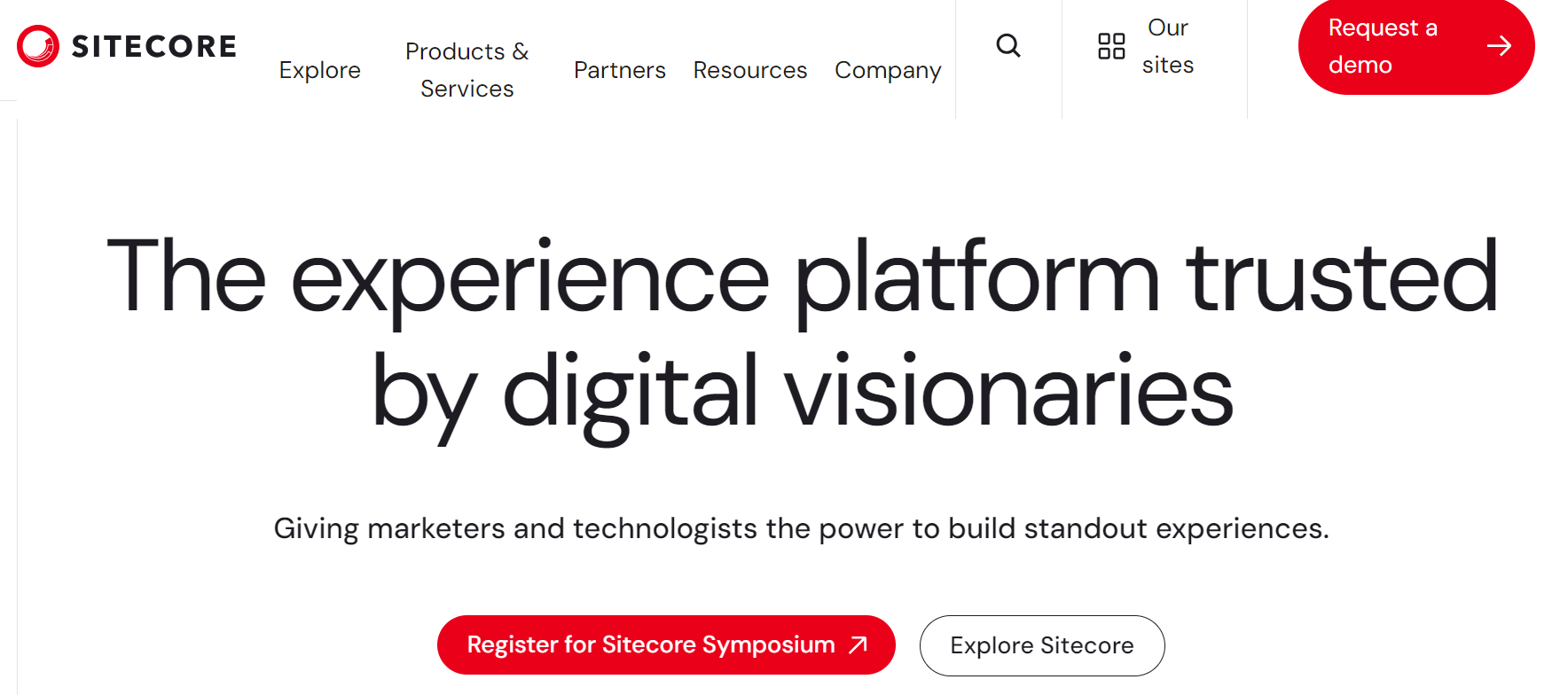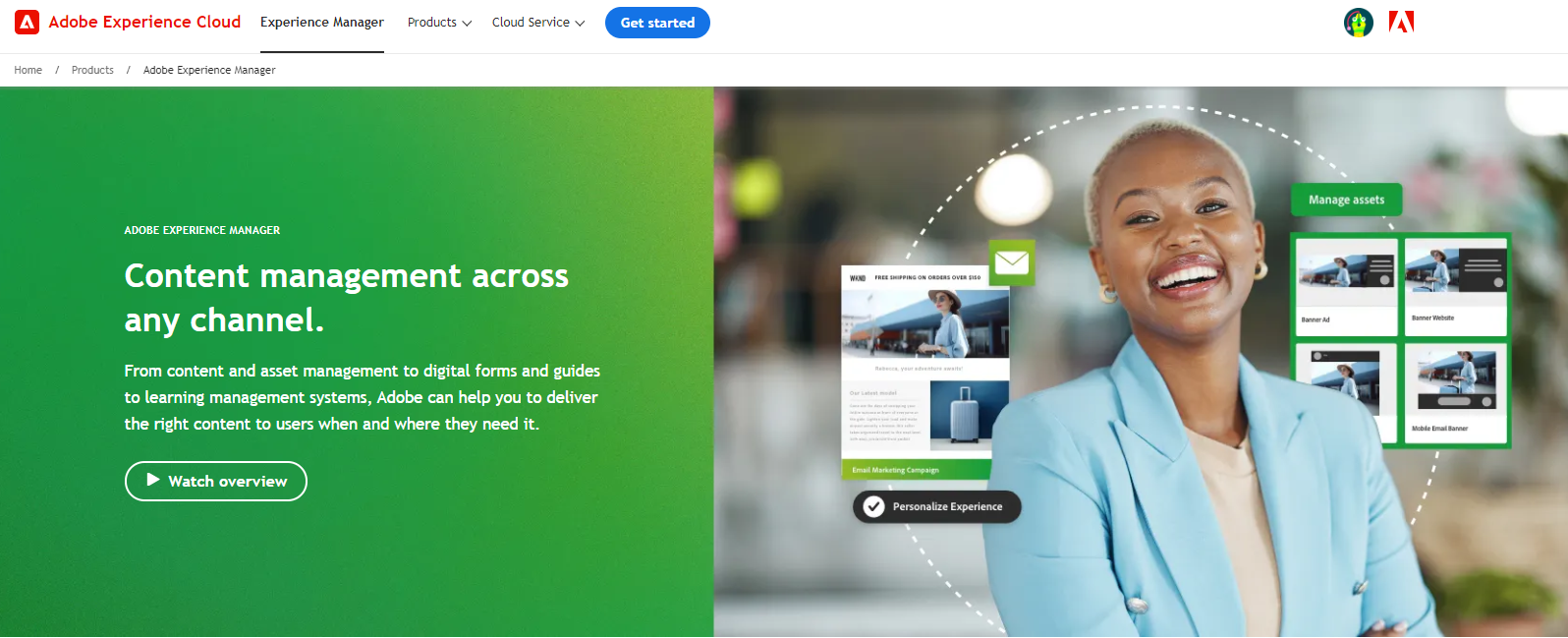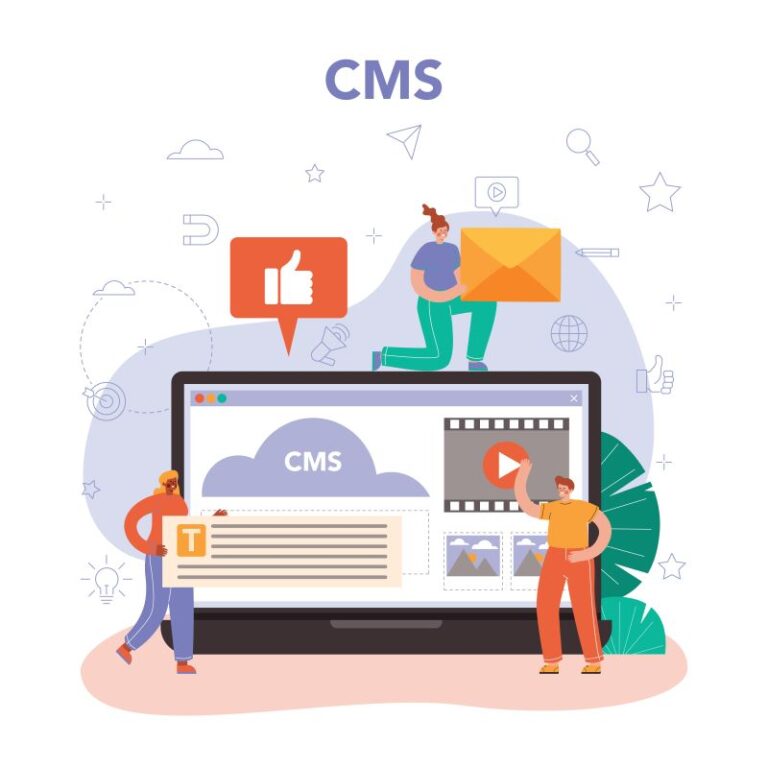In the relentless flux of the digital realm, businesses depend heavily on Content Management Systems (CMS) to craft engaging user experiences and efficiently manage content.
Among the many CMS options available, choosing the right one is crucial to your digital strategy’s success.
This article will explore some of the leading CMS platforms, with a special focus on Sitecore—a powerful enterprise-level CMS that’s making waves in the industry for its advanced features and seamless integration with marketing tools.
We’ll see how Sitecore stacks up against its competitors and why it might be the right choice for your business.
What is a CMS, and Why Does It Matter?
A Content Management System (CMS) is essentially software that allows users to create, manage, and modify website content without needing in-depth technical knowledge.
For businesses, a CMS is more than just a tool—it’s a vital component of their digital strategy. The right CMS can streamline content management, boost user engagement, and drive business growth.
Key Players in the CMS Market
Before diving into how Sitecore compares to its rivals, it’s essential to understand the other major CMS platforms.
Below is a quick summary of the platforms.
WordPress: Known for its ease of use and flexibility, WordPress powers over 40% of the world’s websites.
Joomla: Balances flexibility and user-friendliness, making it a good choice for small to medium-sized businesses.
Drupal: Highly flexible and scalable, Drupal is popular among developers and large enterprises.
Sitecore: A leading enterprise-level CMS, Sitecore is celebrated for its robust features and seamless integration with marketing tools.
Adobe Experience Manager (AEM): A high-end CMS that integrates smoothly with other Adobe products, tailored for large enterprises.
HubSpot CMS: Combines content management with powerful marketing automation, making it perfect for inbound marketing strategies.
WordPress: The Ubiquitous CMS
Globally, WordPress stands as no. 1 in the CMS world, and for good reason.
It offers an intuitive interface, an expansive plugin library, and a vast support community. More importantly, WordPress’ customisability makes it a versatile choice for any business.
Pros
- Ease of Use: Its intuitive interface makes site management a breeze for non-tech users.
- Plugin Galore: Thousands of plugins extend WordPress’s functionality.
- Strong Community Support: A massive user base ensures solutions to issues are just a click away.
Cons
- Security Risks: Popularity comes at a price—WordPress is a frequent target for hackers.
- Scalability Limits: Without significant customisation, WordPress may struggle with large, complex sites.
Joomla: The Middle Ground
Joomla often finds itself positioned between WordPress and Drupal.
It offers more customisation than WordPress while remaining more user-friendly than Drupal, making it a solid choice for businesses seeking balance.
Pros
- Flexibility: More customisation options compared to WordPress.
- Multilingual Out of the Box: Excellent built-in multilingual support.
- Active Community: A large and engaged user community.
Cons
- Learning Curve: More complex than WordPress.
- Limited Extensions: Fewer extensions compared to WordPress.
Drupal: The Developer’s Dream
Drupal stands out as a powerful, flexible CMS, often the go-to for large organisations that require complex sites.
However, tapping into Drupal’s full potential requires considerable technical know-how.
Pros
- Customisation: Extensive options make it perfect for intricate sites.
- Scalability: Built for high-traffic, large websites.
- Security: Robust features favoured by governments and large corporations.
Cons
- Steep Learning Curve: Not for the faint-hearted—beginners beware.
- Resource Intensive: Running a Drupal site demands more server resources and technical expertise.
Sitecore: The Enterprise Powerhouse
In the enterprise CMS realm, Sitecore is a titan, offering features that extend far beyond basic content management.
It’s crafted for organisations requiring a comprehensive Digital Experience Platform (DXP) that manages content, customer data, marketing automation, and personalised experiences.
“The new insurance platform looks fantastic! It’s incredibly streamlined and clear regarding what the client has and whether it’s in force or not. It’s very impressive and significantly better than other providers.” Spokesperson, MLC Life Insurance
Pros
- Personalisation and Insights: Excels in delivering personalised content based on user behaviour.
- Integrated Marketing Tools: Comes with a suite of tools, including email marketing, A/B testing, and campaign management.
- Scalability: Built to handle large, complex sites and grow with your business.
- Enterprise-Level Security: Robust security features ensure your data is well-protected.
Cons
- Cost: A premium price tag that may deter smaller businesses.
- Complexity: Extensive features require skilled developers and IT support.
- Long Implementation Time: Setting up a Sitecore site can be a lengthy process.
Adobe Experience Manager: The Premium Choice
Another heavyweight in the enterprise CMS space, Adobe Experience Manager (AEM) shines with its deep integration with other Adobe products, designed for organisations that demand extensive customisation.
Pros
- Seamless Adobe Integration: Works well with other Adobe tools, offering a comprehensive digital marketing solution.
- Customisation Powerhouse: High degree of customisation for unique digital experiences.
- Digital Asset Management: Strong tools for managing content-heavy sites.
Cons
- High Cost: A premium product with a premium price, less accessible for smaller businesses.
- Complex Implementation: Requires significant time and expertise.
- Steep Learning Curve: Mastering AEM’s features demands considerable effort.
HubSpot CMS: The Inbound Marketing Dynamo
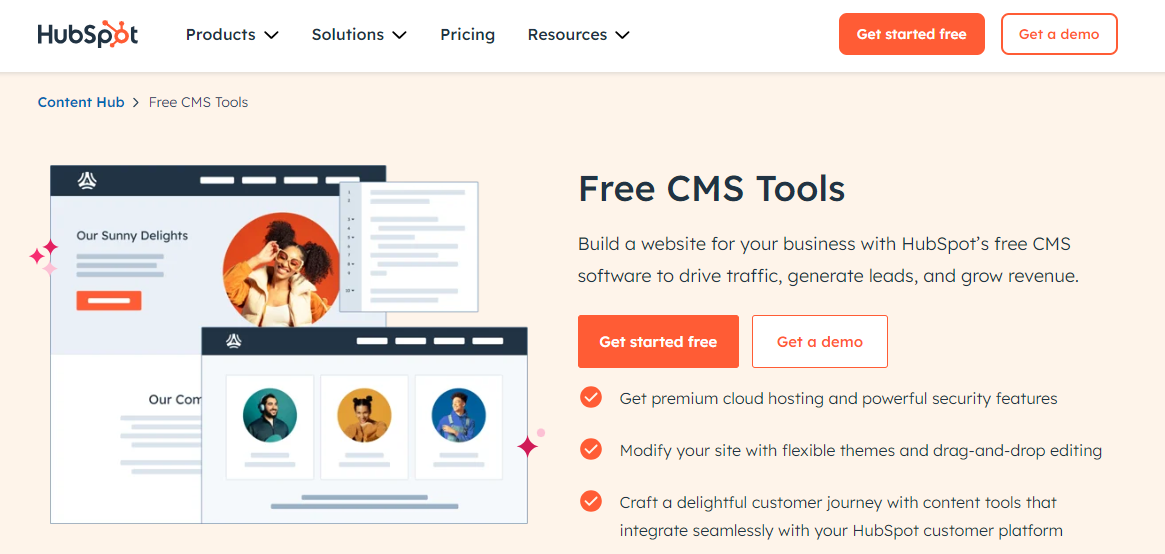
Designed with inbound marketing in mind, HubSpot CMS merges content management with powerful marketing automation, making it ideal for businesses focused on lead generation and customer engagement.
Pros
- Integrated Marketing Tools: Combines content management with email marketing, lead tracking, and CRM integration.
- User-Friendly: An easy-to-use interface for marketers.
- SEO Optimisation: Built-in tools to boost search engine rankings.
Cons
- Customisation Limits: Less flexible compared to Sitecore or Drupal.
- Cost: While cheaper than Sitecore or AEM, it can still be costly as needs grow.
- HubSpot Dependence: Businesses can become heavily reliant on the HubSpot ecosystem.
Sitecore vs. The Competition: A Closer Look
Let’s zoom in on how Sitecore stacks up against its competitors.
Personalisation and Customer Experience: Sitecore’s standout feature is its ability to deliver highly personalised user experiences. Its Experience Platform (XP) tailors content based on user behaviour, preferences, and previous interactions—outshining most other CMS platforms, including WordPress and Joomla.
Integration and Marketing Automation: Sitecore integrates seamlessly with a variety of marketing tools, offering a depth of digital marketing capabilities. Although HubSpot CMS also offers marketing automation, Sitecore’s advanced features like A/B testing and customer journey mapping provide a more in-depth approach to managing customer experiences.
Scalability and Flexibility: When scalability is a priority, Sitecore is hard to beat. Unlike WordPress, which may require extensive customisation to manage complex sites, Sitecore is designed to scale effortlessly as your business grows. Its flexibility makes it suitable for developing intricate, enterprise-level websites.
Cost and Accessibility: Here’s where Sitecore may fall short for some—its higher cost can be a deterrent, particularly for small to medium-sized businesses. However, for large organisations needing a robust, comprehensive CMS, the investment in Sitecore can be justified by its advanced capabilities.
Security: Sitecore’s strong security features make it a trustworthy choice for businesses handling sensitive data. While other platforms like Drupal also offer good security, Sitecore’s enterprise-level measures are particularly appealing to regulated industries like finance and healthcare.
Community and Support: While Sitecore may not boast as large a community as WordPress or Joomla, it offers dedicated, enterprise-level support—a crucial factor for large businesses requiring reliable, immediate assistance. Moreover, Sitecore’s partner network ensures access to skilled developers and consultants for implementation and customisation.
Conclusion: Is Sitecore Your Ideal CMS?
Choosing the right CMS boils down to your business size, goals, and technical resources.
Sitecore is a powerful, enterprise-level CMS that excels in personalisation, integration, scalability, and security.
However, its higher cost and complexity may not be the best fit for smaller businesses or those with limited technical expertise.
For organisations requiring a CMS that delivers personalised experiences, integrates with advanced marketing tools, and scales with business growth, Sitecore is an outstanding choice.
Conversely, if you’re a smaller business or new to content management, platforms like WordPress or HubSpot CMS might be more accessible.
Ultimately, the decision hinges on your specific needs and resources.
Choose the CMS that best aligns with your business’s digital strategy by carefully weighing the strengths and weaknesses of each platform.
Elevate Your Digital Strategy with Websparks
Choosing the right CMS is key to your digital success. At Websparks, we specialise in helping businesses like yours find and implement the best CMS solutions.
With our award-winning solutions and wide range of digital services from the advanced capabilities of Sitecore to the user-friendly experience of WordPress or HubSpot, we’ve got you covered.
Reach out to us today to discuss how we can tailor the perfect CMS to meet your unique needs and drive your digital strategy forward. Let Websparks be your partner in crafting exceptional digital experiences!

